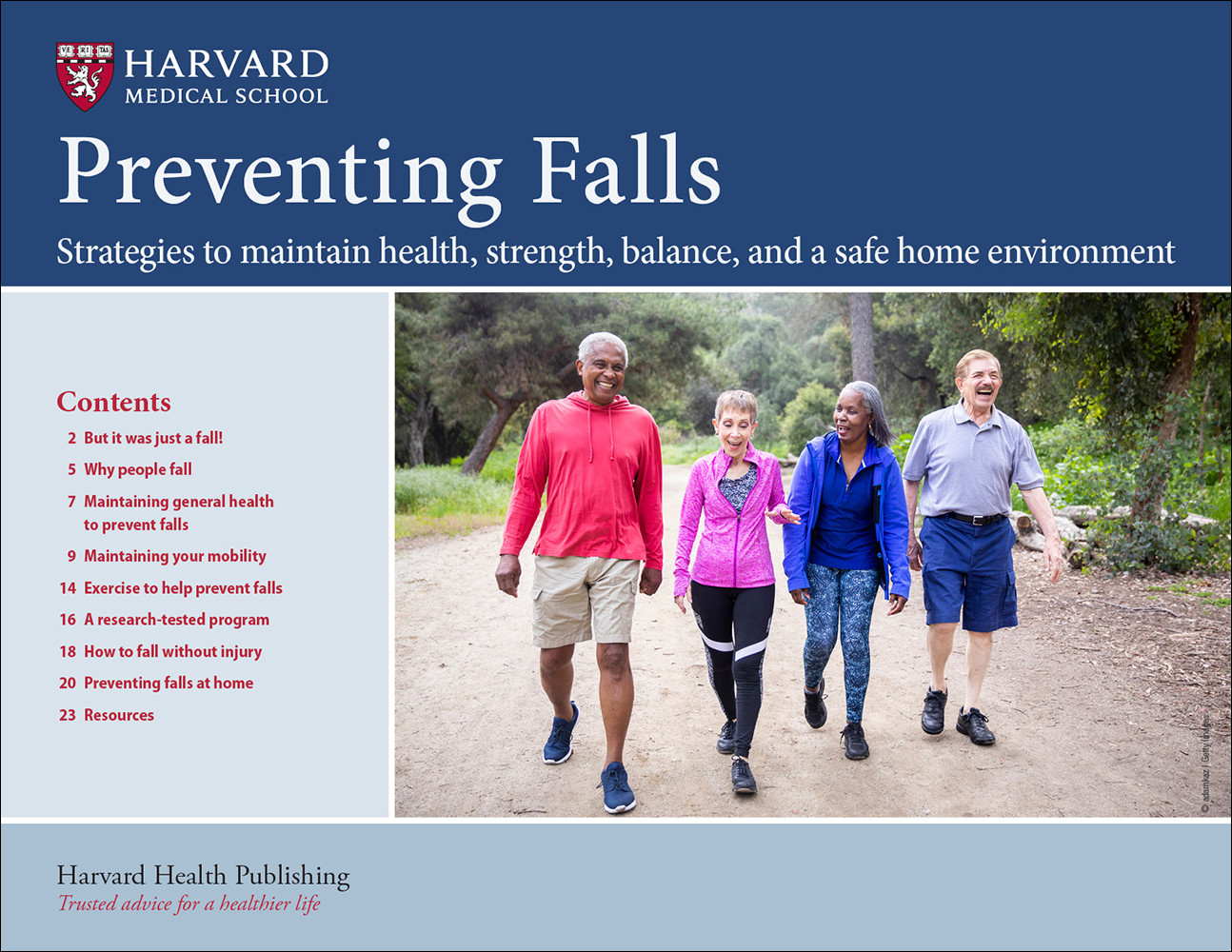Preventing Falls
Harvard Doctors Reveal
The best ways to prevent falls!
What do some medications, inner ear problems, foot pain, weight changes and vitamin D deficiency have in common? They can all affect your balance.
And when you’re an older adult, being just the slightest bit off balance—even for a moment—can lead to a debilitating fall. In fact, an estimated 1 in 3 people over 65 will fall each year. Every 19 minutes, an older adults dies from a fall-related injury. Women are more likely to fall than men, but men are more likely to die from a fall than a woman.
The good news? Many falls are preventable!
Keeping your balance and preventing a fall just got easier, thanks to a new report Preventing Falls, from the experts at Harvard Medical School. This information-packed guide explains how your body works to keep you balanced, and the health problems, medications, and home-hazards that can set you up for a fall. And it provides specific ways to help you improve your balance and maintain your mobility.
Discover the reasons most people fall.
Knowing what causes most falls, is one of the best ways to prevent them. This guide explains why some blood pressure medicines may make you more likely to fall, how cognitive impairment and dementia can lead to balance problems, and how even small changes in the way you walk can increase the risk of falling.
You’ll learn how improving your health can go a long way to preventing a fall.
For example, if your vision is failing or you have poor depth perception you are at a higher risk of falling. A simple eye exam can detect these problems. Likewise, allergies and head colds can cause dizziness. So if you have a head cold take extra care to use handrails. Having stiff joints can make it harder to catch yourself if you stumble. And if your neck is stiff you may end up turning your whole upper body to look behind you, which can easily throw you off balance.
Fortunately, for virtually every problem that can cause a fall, Harvard experts have uncovered a solution and included it in Preventing Falls.
You’ll discover exercise programs that help reduce the risk of falling, why it is important to gain and maintain muscle power as you age, moves that increase your flexibility and improve balance, balance-training exercises that are specifically designed to reduce falls—particularly in the elderly. And you’ll even learn about ways you can fall without getting hurt and so much more.
Don’t risk a debilitating fall. Get Preventing Falls and start reading right now so you can improve your balance and mobility and maintain your independence.


